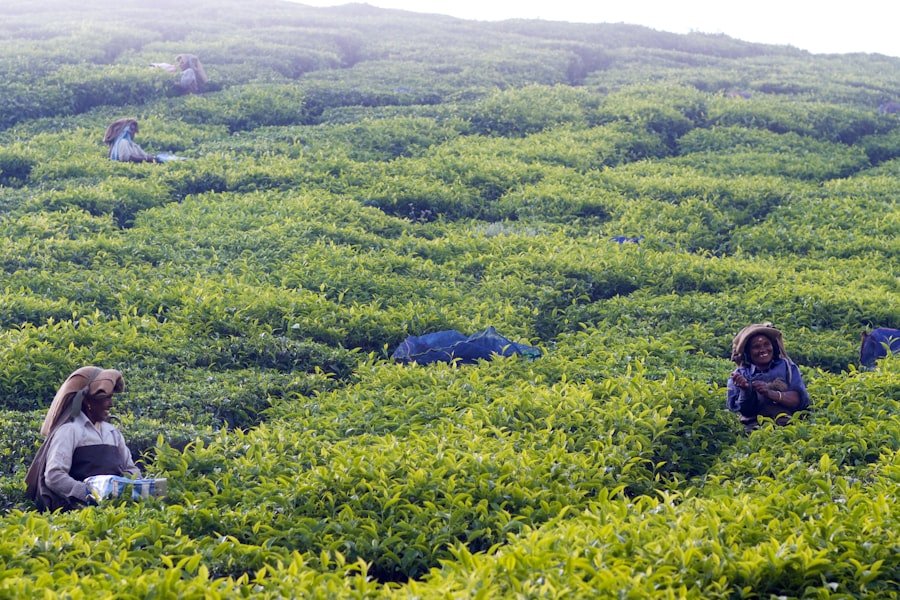Globalization has profoundly transformed global interactions, fostering unprecedented connections between people, cultures, and economies worldwide. While this phenomenon has contributed to economic growth and development in numerous regions, it has simultaneously given rise to various forms of exploitation and human rights violations. The interconnected nature of the global economy has created opportunities for multinational corporations to exploit labor, natural resources, and vulnerable communities, often at the expense of human rights.
Consequently, there is increasing concern regarding the negative impact of globalization on vulnerable populations and a growing demand for enhanced accountability and protection of human rights in the globalized world. The effects of globalization on exploitation and human rights are complex and wide-ranging, influencing various aspects of society and the environment. These impacts include labor exploitation within global supply chains, environmental degradation, and the exploitation of indigenous communities.
The negative consequences of globalization on human rights are extensive and far-reaching. Addressing these issues necessitates a comprehensive understanding of the underlying causes and a coordinated effort to hold accountable those responsible for human rights violations in the globalized context.
Key Takeaways
- Globalization has led to increased exploitation and human rights violations in various aspects of society.
- Labor exploitation is prevalent in global supply chains, with workers often facing poor working conditions and low wages.
- Environmental exploitation has a direct impact on human rights, as communities suffer from pollution and loss of resources.
- Human trafficking and modern slavery are rampant in the globalized world, with vulnerable populations being exploited for profit.
- Indigenous communities are often exploited, leading to the violation of their cultural rights and heritage.
- Multinational corporations play a significant role in human rights violations, often prioritizing profit over ethical practices.
- Addressing the dark side of globalization requires collective action and solutions that prioritize human rights and ethical business practices.
Labor Exploitation in Global Supply Chains
Labor Exploitation: A Widespread Issue
One of the most pressing issues related to globalization and human rights is labor exploitation in global supply chains. As multinational corporations seek to cut costs and maximize profits, they often outsource production to developing countries where labor is cheap and regulations are lax. This has led to widespread exploitation of workers, including long hours, low wages, unsafe working conditions, and limited or no access to labor rights.
Sweatshop Conditions and Lack of Recourse
Many workers in global supply chains are forced to work in sweatshop-like conditions, with little to no recourse for addressing their grievances. The impact of labor exploitation in global supply chains is felt by millions of workers around the world, particularly in industries such as textiles, electronics, and agriculture. The lack of transparency and accountability in these supply chains makes it difficult to monitor and address labor rights violations, leaving workers vulnerable to exploitation.
A Collaborative Effort to Combat Labor Exploitation
Efforts to combat labor exploitation in global supply chains must involve collaboration between governments, corporations, and civil society to ensure that workers are protected and their rights are upheld.
Environmental Exploitation and its Impact on Human Rights

Globalization has also led to widespread environmental exploitation, with significant implications for human rights. The pursuit of economic growth and development has often come at the expense of the environment, leading to deforestation, pollution, and the depletion of natural resources. This has had a disproportionate impact on vulnerable communities who rely on the environment for their livelihoods, food security, and cultural practices.
The degradation of the environment has also contributed to climate change, which poses a significant threat to human rights, particularly for those living in poverty or in areas prone to natural disasters. The impact of environmental exploitation on human rights is evident in the loss of land and livelihoods for indigenous communities, as well as the increased vulnerability of marginalized populations to environmental hazards. Addressing these issues requires a holistic approach that takes into account the interconnectedness of environmental sustainability and human rights.
Efforts to combat environmental exploitation must involve measures to protect natural resources, mitigate climate change, and ensure that vulnerable communities are not disproportionately affected by environmental degradation.
Human Trafficking and Modern Slavery in the Globalized World
Human trafficking and modern slavery are among the most egregious human rights violations associated with globalization. The interconnectedness of the global economy has created opportunities for criminal networks to exploit vulnerable populations through forced labor, sexual exploitation, and other forms of modern slavery. The demand for cheap labor and goods has fueled a lucrative industry that preys on the most vulnerable members of society, including women, children, and migrants.
The transnational nature of human trafficking makes it difficult to combat, as criminal networks operate across borders and exploit legal loopholes to evade prosecution. The impact of human trafficking and modern slavery on human rights is devastating, with millions of people around the world being subjected to exploitation and abuse. Efforts to combat human trafficking must involve a coordinated international response that addresses the root causes of this crime, including poverty, inequality, and lack of opportunities.
This requires greater cooperation between governments, law enforcement agencies, and civil society organizations to identify and prosecute traffickers, as well as provide support and protection for victims.
Exploitation of Indigenous Communities and Cultural Rights
Globalization has had a profound impact on indigenous communities, leading to the exploitation of their lands, resources, and cultural heritage. The pursuit of economic development has often come at the expense of indigenous rights, as multinational corporations seek access to natural resources located on indigenous lands. This has led to land grabbing, environmental degradation, and the loss of cultural traditions that are integral to indigenous identity.
The exploitation of indigenous communities has also led to social marginalization and economic inequality, further exacerbating their vulnerability to human rights violations. The impact of exploitation on indigenous communities is evident in the loss of land and livelihoods, as well as the erosion of cultural rights and traditions. Efforts to combat the exploitation of indigenous communities must involve measures to protect their lands, resources, and cultural heritage, as well as ensure their meaningful participation in decision-making processes that affect their lives.
This requires greater recognition of indigenous rights and the implementation of policies that respect their autonomy and self-determination.
The Role of Multinational Corporations in Human Rights Violations

The Consequences of Corporate Actions
This has led to widespread labor exploitation, environmental degradation, and human rights abuses in various parts of the world. The lack of accountability and transparency in corporate operations has made it difficult to hold corporations responsible for their actions, leaving affected communities without recourse for addressing their grievances.
The Far-Reaching Impact of Corporate Human Rights Violations
The impact of multinational corporations on human rights is far-reaching, affecting millions of people around the world who are subjected to exploitation and abuse. Efforts to address corporate human rights violations must involve greater regulation and oversight of corporate activities, as well as measures to hold corporations accountable for their actions.
Towards Greater Transparency and Accountability
This requires greater transparency in supply chains, as well as legal mechanisms to ensure that corporations respect human rights in their operations.
Addressing the Dark Side of Globalization: Solutions and Call to Action
Addressing the dark side of globalization requires a concerted effort from governments, corporations, civil society organizations, and individuals to uphold human rights in the globalized world. This includes greater regulation and oversight of corporate activities to ensure that they respect labor rights, environmental sustainability, and indigenous rights. It also requires measures to combat human trafficking and modern slavery through international cooperation and support for victims.
Furthermore, addressing the dark side of globalization requires a shift towards more sustainable and equitable economic models that prioritize human rights over profit. This includes promoting fair trade practices, supporting ethical supply chains, and empowering marginalized communities to participate in decision-making processes that affect their lives. It also requires greater investment in education, healthcare, and social services to address the root causes of exploitation and inequality.
In conclusion, addressing the dark side of globalization requires a comprehensive approach that takes into account the interconnectedness of human rights and sustainable development. It requires greater accountability for those responsible for human rights violations in the globalized world, as well as measures to protect vulnerable populations from exploitation and abuse. It also requires a collective effort from all sectors of society to uphold human rights as a fundamental principle in the globalized world.
If you’re interested in learning more about the economic impact of globalization, check out The Econosphere’s blog. They have a great article on the ethical implications of outsourcing and the exploitation of workers in developing countries. https://theeconosphere.com/ This article delves into the human rights issues that arise from the global economy and offers insight into potential solutions. It’s a thought-provoking read that complements the discussion of exploitation and human rights issues in The Dark Side of Globalization.
FAQs
What is globalization?
Globalization refers to the interconnectedness and interdependence of countries and their economies through the exchange of goods, services, information, and ideas on a global scale.
What are the benefits of globalization?
Globalization can lead to increased economic growth, access to new markets, technological advancements, and cultural exchange.
What are the negative effects of globalization?
Globalization can lead to exploitation of workers, environmental degradation, widening economic inequality, and loss of cultural identity.
What are some examples of exploitation in the context of globalization?
Examples of exploitation in the context of globalization include sweatshop labor, child labor, forced labor, and unsafe working conditions in developing countries.
How does globalization impact human rights issues?
Globalization can impact human rights issues by creating situations where workers are exploited, communities are displaced, and vulnerable populations are marginalized.
What are some measures to address the dark side of globalization?
Measures to address the negative effects of globalization include enforcing labor laws, promoting fair trade practices, supporting ethical supply chains, and advocating for corporate social responsibility.








